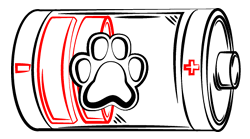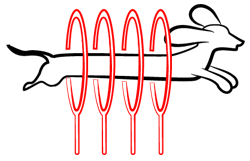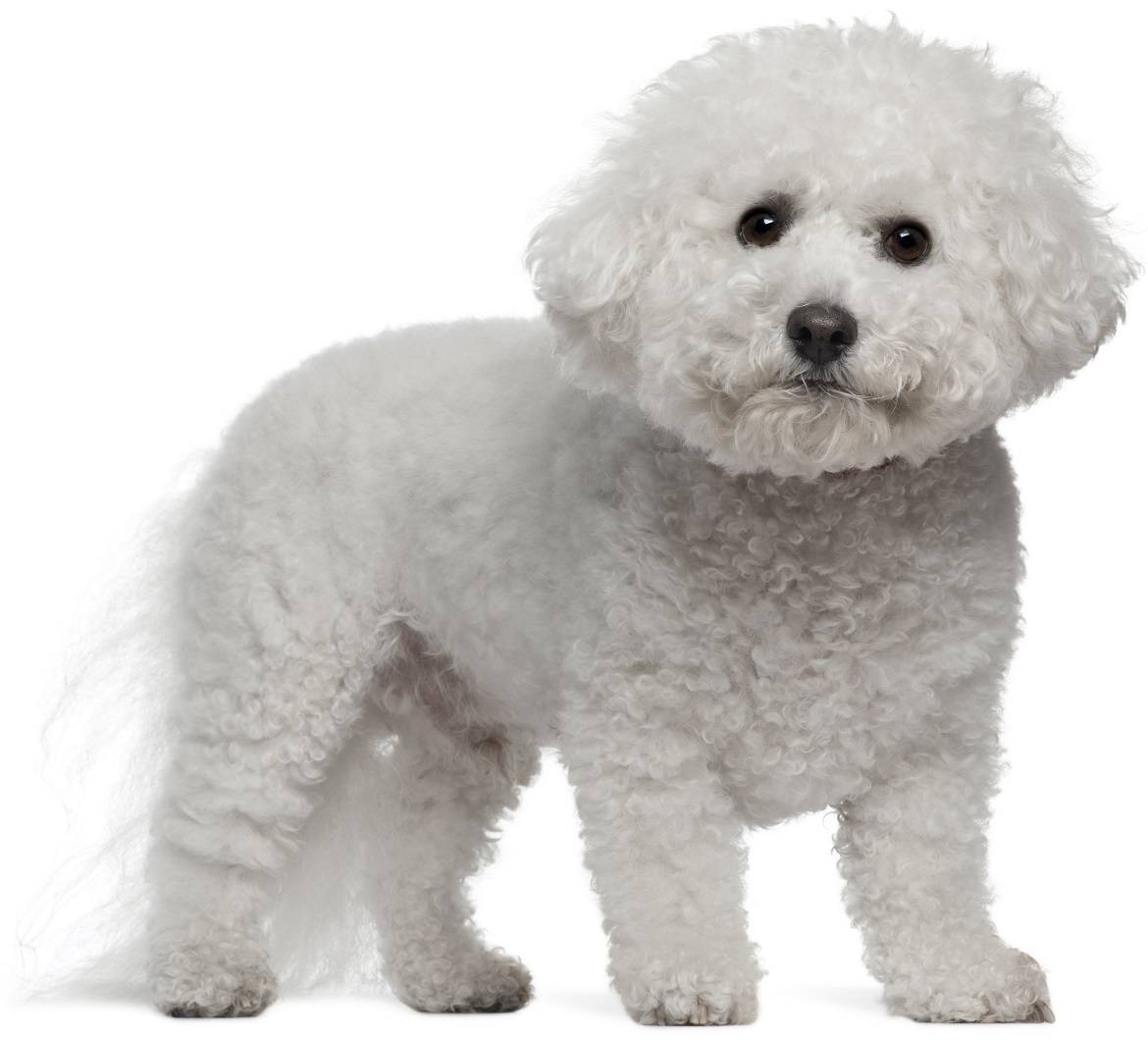
Paws ‘N’ Pups Quickview
Size
| Energy Level
| Trainability
| Paws ‘N’ Pups Rank
|
Characteristics
| Physical Characteristics: Height: 9-12” Weight: 7-11 lbs. Energy Level: Moderate-High | Colors: The American Kennel Club recognizes the Bichon Frise in the following colors:
|
| Health & Longevity: 12-15 years Breeders screen for the following conditions:
Bladder stones and infections are frequently seen in the breed, as are allergies. Some Bichons also experience vaccine sensitivity. | |
Temperament & Train-ability
The Bichon Frise is a merry, cheerful little dog that loves people above nearly all else. This easy to live with housedog is playful and snuggly, and amiable with strangers and other animals. Bichons make good first dogs for those prepared for their grooming needs. Their moderate exercise needs are easily satisfied with a walk or two each day and some play time in the yard or house. Affectionate and gentle, Bichons can make wonderful family dogs; compact and sturdy, they are usually tolerant of the commotion and noise of children.
Quite adaptable to many different lifestyles, the one thing a Bichon must have is lots of time with their humans. Those left alone too many hours can succumb to barking, and destructive or neurotic behavior. They are heartsick when separated from the people they love. That said, it is beneficial for them to learn that it is OK to be alone – for a little while. This is easy to accomplish, and will make the unavoidable alone times much less stressful. Shyness exists in some lines, so care should be exercised when choosing a breeder.
While some Bichons can be barky, this is easily dealt with through positive training. Despite their love of people known and unknown, they make good watchdogs, eager to help out by announcing when something out of the ordinary has occurred.
Bichons are easy to train; they are intelligent dogs that love people and love interacting. Positive reinforcement methods should be chosen over harsh treatment. There is little reason to use punitive, forceful methods on such a devoted, willing and bright little dog. Doing so may shatter their trust in you and leave them confused and afraid, permanently damaging your relationship.
Housetraining can be difficult, so some people use a doggie door leading to an enclosed and covered area. Many owners opt for an indoor potty option for their dogs, such as pee pads or another type of potty tray. This ensures an acceptable location for the dog to relieve itself is always close by, reducing the likelihood of accidents in unwanted places. Bichons need lots of positive socialization to assure they grow to be confident about the world rather than fearful. Because separation anxiety is in the breed, it can be well worth the time to teach your Bichon that being alone is not the end of the world. It is recommended that Bichons be introduced to grooming very early and that it is a very positive experience. Puppies should make early “training” visits to a qualified professional groomer to learn not to fear the sound of clippers, etc. Teaching a reliable “quiet” can also be useful as some do enjoy barking. While some Bichons compete in various dog sports or do therapy work, their most important role is that of treasured companion to their beloved people.
Grooming
The beautiful “poufy” appearance of the Bichon is the result of a double coat; soft, dense undercoat and coarse outer coat that stands out from the body for that powder puff look. The price of that look is lots and lots of brushing; daily brushing and combing will be necessary to keep mats from forming. Many owners opt to have their Bichons clipped short to make for less maintenance, which will need done every 4-6 weeks. Be aware, even a short cut Bichon will need their ears and tail brushed to prevent matting.
Bichons are hypoallergenic for many people; their undercoat stays on the dog rather than falling on the floor when it sheds out. Although this is good news for allergy sufferers and fussy housekeepers, this means brushing must be done religiously or matting will occur. Twice a year, in the spring and fall when they “blow” their old coats, brushing needs increase tremendously.
Toenails should be trimmed; most Bichons will not wear down their nails, even if walked on concrete. Teeth must also be checked and cleaned regularly. A Bichon’s ears will need regular cleaning with a pH-balanced ear cleaner, and tearstains may occur in some lines.
Diet
The amount of food your Bichon will need can vary depending on age, activity level, and type of food fed; on average, they will eat about 1/2 – 1 1/2 cups of food per day, which should be fed in two meals. If your Bichon experiences food-related allergies and sensitivities, some experimentation may be needed to find a food your dog can tolerate. A constant supply of fresh, clean water must always be available.
Looking for a Bichon Frise?
 Find A Bichon Frise Breeder |  Bichon Frise Puppies For Sale |  Adopt A Bichon Frise |
Cost
As with most popular breeds, prices for Bichons have a very wide range, from the $600-$900 range to $1,000-$2,500. Breed rescue organizations are another option, where lovely dogs needing a home can be found; adoption fees vary widely, but are generally in the $200-$500 range.
Paws ‘N’ Pups Ranking
Paws ‘N’ Pups ranks every breed out of 4 with 1 being easiest to integrate into your life and 4 being the toughest – The lower the ranking the better.
Ranking takes into account a few basic factors such as cost, skill level needed, high vs. low maintenance, and how critical regular training is to success.
The Bichon rates a 2; they generally require little skill, and nice dogs can be found for reasonable costs that make easy pets. However, they also have heavy grooming needs.
Breeds Similar To Bichon Frise
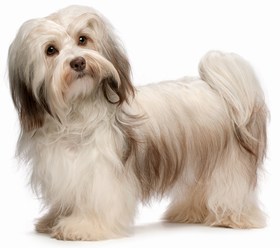 Havanese | 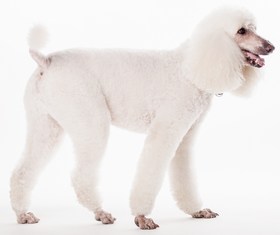 Poodle | 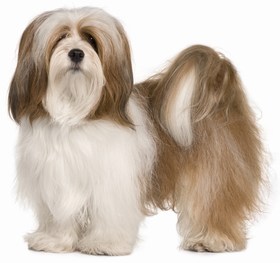 Lhasa Apso | 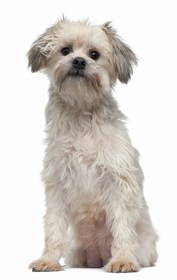 Lowchen |


